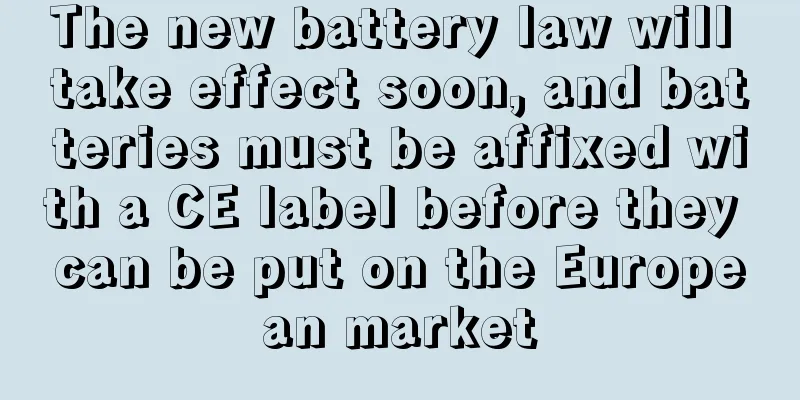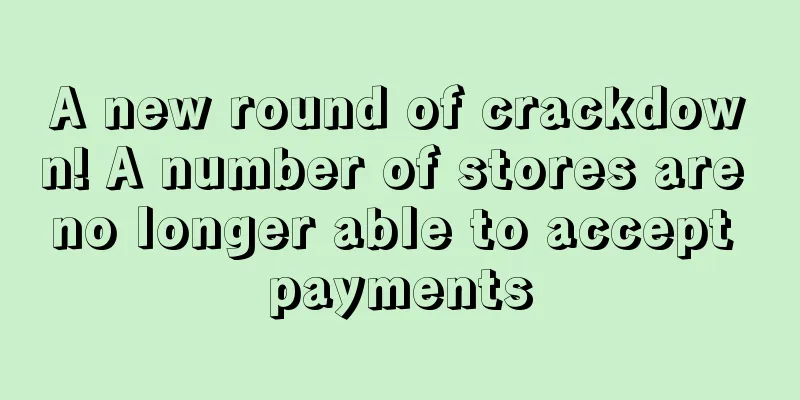The new battery law will take effect soon, and batteries must be affixed with a CE label before they can be put on the European market

|
It is reported that on December 10 last year, the European Union released a draft proposal for a new battery law, intending to repeal the current EU Battery Directive (2006/66/EC), adjust the implementation methods, reclassify batteries, increase carbon footprint, recycled raw materials, electrochemical performance and durability, QR code labels, battery passports and other requirements.
The new regulations only ensure that batteries placed on the EU market are sustainable and safe throughout their life cycle. They are scheduled to be implemented on January 1, 2022. The current Battery Directive will no longer be valid from July 1, 2023, except for some provisions.
Batteries and waste batteries have been regulated in the EU market under the Battery Directive since 2006. Due to the emergence of various electric products in recent years, toys and tools are transforming towards automation and intelligence, and the public's demand for batteries has grown rapidly. Coupled with the recent rise of electric vehicles in European countries, the demand for batteries has increased significantly.
In order to minimize the impact on the environment, the EU has imposed mandatory requirements on all batteries placed on the market in Europe, striving to minimize the impact of batteries on the environment.
In addition to no longer using the previous "Directive" control method and changing to "Regulation", the new battery law also adjusted the scope of control and reclassified the battery categories. It is planned to separate electric vehicle batteries from industrial batteries and control them as a separate category . It also clarifies the limits of hazardous substances that automotive batteries should comply with.
In addition, the new battery has also changed the management and control requirements, adding new requirements such as carbon footprint, recycled raw materials, electrochemical performance and durability, removability and replaceability, QR code label and CE label, battery management system, battery passport, safety, and updated the battery scrapping requirements and raw material recycling levels.
It should be noted that the new EU battery law is bundled with the EU CE certification for the first time. The draft of the new battery law intends to include batteries in the scope of CE label control, requiring that batteries must be affixed with a CE label and accompanied by an EU Declaration of Conformity (DoC) before they can be put on the market .
That is to say, in addition to the basic battery label, batteries exported to the EU must also be affixed with the CE mark and have a DoC document before they can be sold in the EU market. EU authorized agents are also a key link in the export process to the EU. E-commerce platform Cross-border e-commerce market New Battery Law |
<<: Huge demand! India's mobile app market to grow exponentially in 2021
Recommend
Türkiye's e-commerce market exceeds 73 billion yuan, with the rise of middle-aged and elderly "shopping addicts"
The number of online shoppers reached 37.2 millio...
What is SOUNDPEATS? SOUNDPEATS Review, Features
Founded in 2010, SOUNDPEATS is an expert in light...
Order volume drops by 40%! Amazon sellers can’t sit still
Since last week, some Amazon sellers have entered...
What is icancycling? icancycling Review, Features
icancycling is located in Shenzhen, one of the mos...
Cold start to the year! Cross-border sellers: Orders decreased by 50%
With the sudden increase in new cross-border e-co...
What is Socialbakers? Socialbakers Review, Features
Socialbakers is a website that provides data analy...
Australia is experiencing a shopping storm, with online spending exceeding $50 billion
Australians took online shopping by storm last ye...
Amazon starts charging storage fees during peak season, some sellers were deducted 500,000
This week, # Cross-border e-commerce welcomes pea...
What is Amazon.WORK? Amazon.WORK Review, Features
Amazon.WORK is an independent top-level domain na...
What is Amazon Pay? Amazon Pay Review, Features
Amazon Pay is a mobile payment service launched b...
Quick Look! The Types of E-Commerce That American Consumers Are Most Annoyed By
With the development of e-commerce, consumers'...
What is Benitago Group? Benitago Group Review, Features
Benitago Group specializes in deep data analysis t...
Amazon Singapore launches inventory performance index with threshold as high as 750
According to Amazon's official introduction, ...
What is Grab? Grab Review, Features
Grab (formerly known as Grab Taxi Holdings Pte. L...
Malicious follow-up sales again! The seller said: I have 3,000 buyer accounts, who is afraid of me?
I believe that every seller is familiar with the ...









